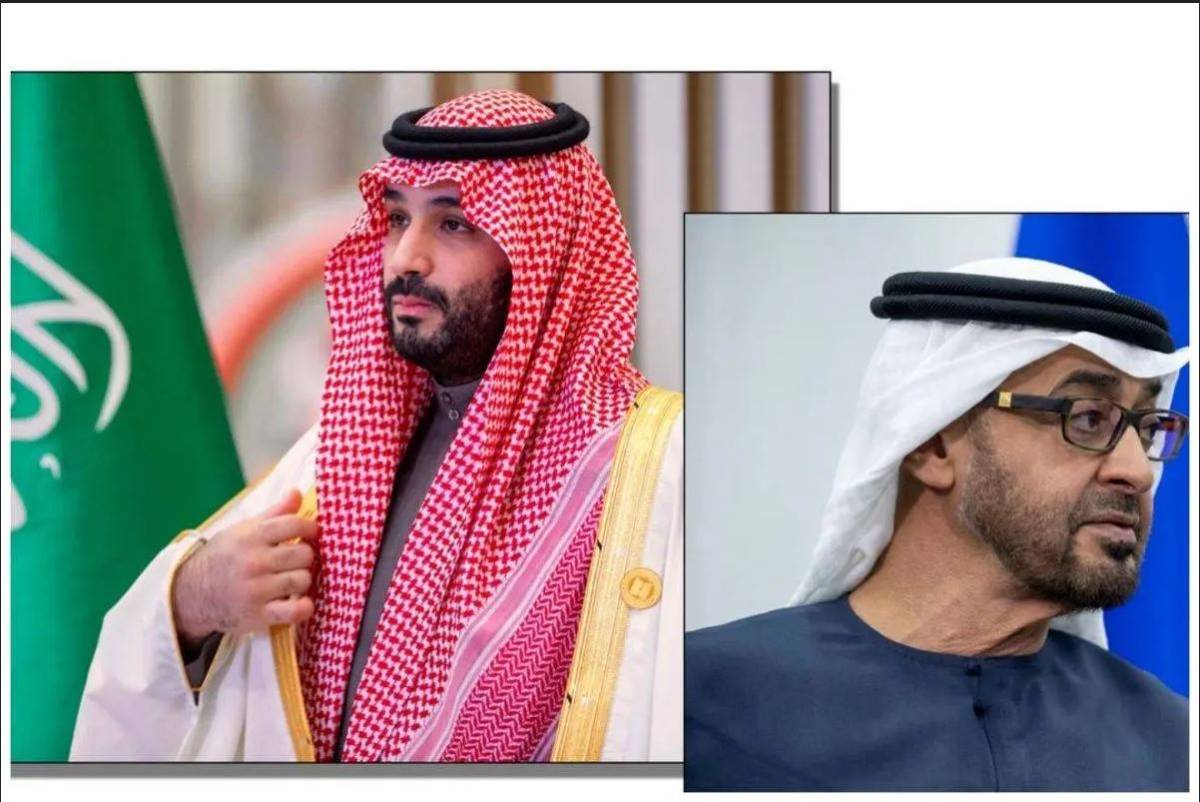2086 Views
UAE’s Gold, Ports, and Power: Inside Sudan’s Geopolitical Struggle
In recent years, a growing number of regional and extra regional actors have entered Africa with specific security and economic goals. Each actor arrives with its own agenda and priorities, intensifying local and regional competition. Interactions between states and international non-state actors have further complicated the situation. Sudan’s war exemplifies this dynamic, as ongoing shifts in the global order and power balance have created opportunities for the Sudanese Armed Forces (SAF) and the Rapid Support Forces (RSF) to gain external support.
Multiple actors play a role in this conflict, including Israel, the United States, and others. However, two Persian Persian Gulf monarchies— the United Arab Emirates (UAE) and Saudi Arabia (KSA)—stand out as the main supporters of the parties involved.
Sudan has grown increasingly significant to regional and extra regional powers due to geographic, political, and economic factors. Geo-strategically, its location between the Sahel and the Red Sea—both regions affected by instability and conflict—makes it a key player. These areas, stretching from the Indian Ocean to the Atlantic, face shared challenges such as political instability, poverty, food insecurity, climate change impacts, internal and external wars, population displacement, transnational crime, and the rise of armed groups and terrorist organizations.
UAE’s Role in Sudan
One of the most influential foreign actors in Sudan is the UAE, which supports the RSF. While Abu Dhabi still officially denies this involvement, ample evidence indicates otherwise. This raises the question: what are the UAE’s interests in Sudan? Over the past decade, the UAE has played a major role in Sudan’s economic landscape and appears keen on maintaining its influence amid ongoing conflicts.
1. Sudanese Gold
Sudan’s gold industry has become a lifeline of the country’s civil war. Almost all gold trade flows through the UAE, enriching both military and paramilitary groups. Since the early 2010s, the UAE has been Sudan’s primary gold importer. In 2022, official data shows the UAE imported $2.29 billion worth of Sudanese gold. However, the real numbers are likely much higher; approximately 90% of Sudan’s gold production—an estimated $13.4 billion in illicit trade—is smuggled through transit routes via Chad, Egypt, Ethiopia, Uganda, and South Sudan before reaching the UAE.
When civil war erupted in 2023 between the RSF and SAF, both forces competed for control over the state and its resources. Sudan’s state mineral company reported that gold production in 2024 reached 64 tons, up from 41.8 tons in 2022.
2. UAE’s Food Basket
Since the 1970s, Persian Gulf countries have invested in Sudan’s agriculture to counter regional food insecurity. The vision of turning Sudan into the “breadbasket of the Arab world” motivated agricultural mechanization, formally supported by Persian Gulf states since 2003. Agriculture remains Sudan’s economic backbone, accounting for 60% of exports and one-third of GDP in 2022 (AfDB report).
Due to limited arable land and water, the UAE imports 90% of its food, making Sudan vital to meeting its food demand. UAE investments focus heavily on livestock feed, crop production, and animal husbandry. Amid ongoing conflicts, two Emirati companies—IHC (International Holding Company) and Janan—cultivated over 50,000 hectares of Sudanese land. Shortly before the war, IHC signed an agreement with the DAL group to develop an additional 162,000 hectares in Abu Hamad, northern Sudan.
3. Strategic Port Control
With 700 kilometers of Red Sea coastline, Sudan is strategically crucial for the UAE’s regional ambitions. Its location makes Sudan a prime target for Emirati efforts to control key ports. Like in the Horn of Africa, the UAE often achieves such goals through commercial fronts, such as Abu Dhabi Ports and DP World.
In 2020, anonymous Sudanese officials told Al Jazeera that negotiations were underway with Dubai Ports World for managing the southern container terminal at Port Sudan, though the deal fell through due to opposition. However, in December 2022, Sudan signed a contract with an Emirati consortium, including Abu Dhabi Ports and Invictus Investment, to develop Port Abu Amama on the Red Sea. This site, previously a small naval base, is being repurposed to serve UAE strategic interests, supporting Abu Dhabi Ports’ broader expansion near the Suez Canal. The $6 billion project includes port infrastructure, a free trade zone, and a 500 km road connecting the port to the agricultural projects mentioned above.
4. Dominance over Sudan’s Financial Sector
Before the war, Sudan’s banking sector lagged due to long-term U.S. sanctions, isolating it from the global financial system. During this period, Faisal Islamic Bank of Sudan and Abu Dhabi Islamic Bank were the main institutions facilitating transfers to and from Sudan. UAE investments in Sudan’s financial sector were also expanding before sanctions were lifted.
Most foreign banks operating in Sudan are based in Persian Gulf countries—mainly Saudi Arabia, the UAE, and Qatar. These seven banks collectively hold 23% of Sudan’s total banking assets, aiming to support and facilitate Persian Gulf investments throughout Sudan’s economy. The UAE’s involvement in the war can therefore be seen as consolidating its position as Sudan’s leading financial service provider.
Conclusion
As with other global crises such as the wars in Ukraine and Gaza, Western powers and the U.S. are deeply implicated. Resolving Sudan’s crisis through negotiation appears highly challenging, as both sides treat the conflict as a zero-sum game—one side’s victory demands the other’s defeat. Understanding the UAE’s growing influence is crucial for grasping Sudan’s current conflict and the Red Sea region’s geopolitical dynamics. However, it is clear that UAE involvement alone did not create Sudan’s crisis; rather, it has advanced Western and Israeli interests, facilitating coups, fragmentation, and ongoing instability.
Translated by Ashraf Hemmati from the original Persian article written by Hakima Zaeimbashi
1. https://www.ispionline.it/en/publication/sudans-civil-war-and-the- Persian Persian Gulf-chessboard-207431?utm_source=chatgpt.com
2. https://ecfr.eu/article/sudan-a-war-europe-cannot-stop-but-cannot-ignore/?utm_source=chatgpt.com
3. https://en.al-akhbar.com/news/five-reasons-why-the-uae-is-fixated-on-sudan
https://peoplesdispatch.org/2025/07/27/five-reasons-why-the-uae-is-fixated-on-sudan/?utm_source=chatgpt.com

Comment
Post a comment for this article